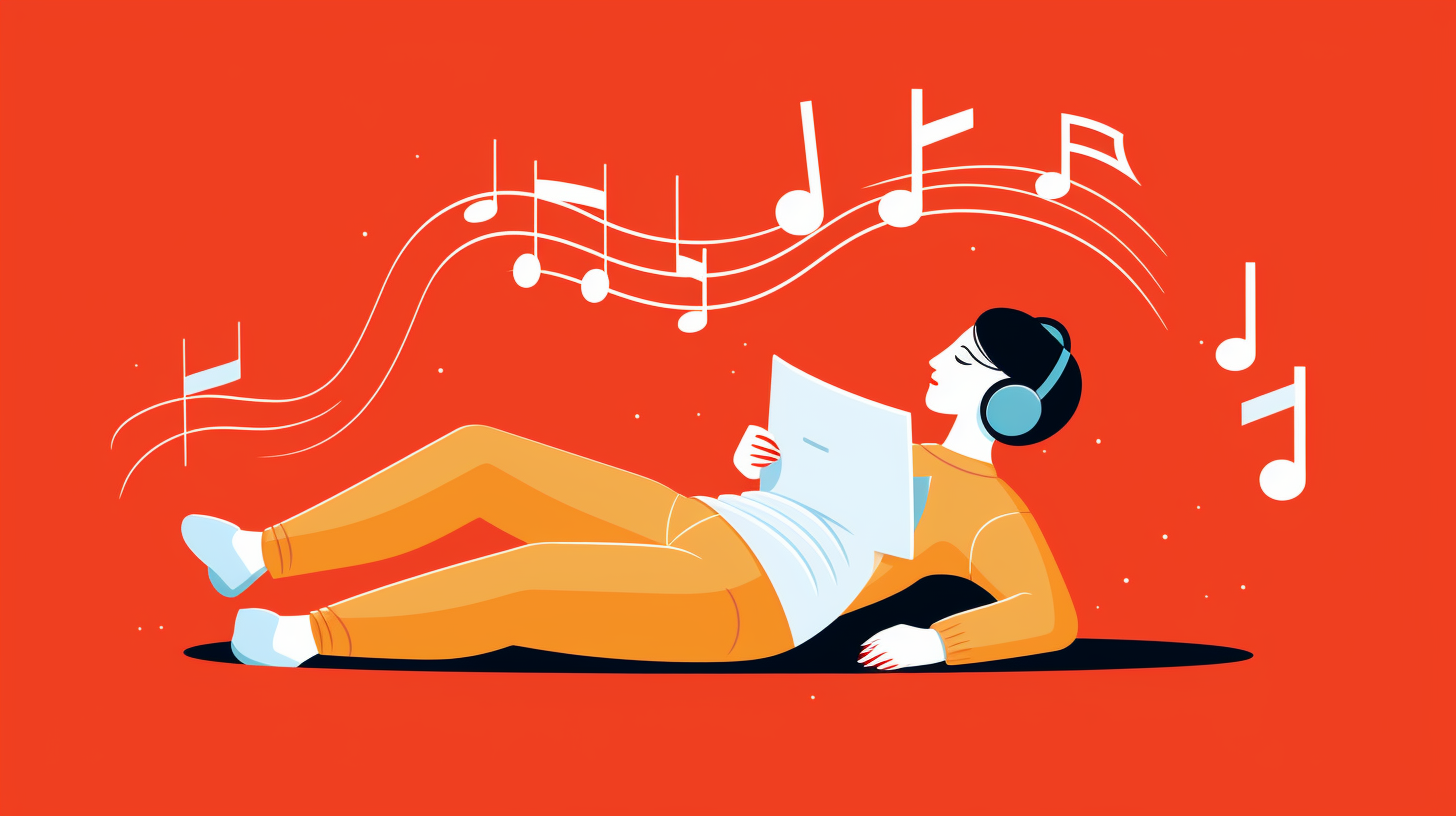“Does reading help you fall asleep?” This question carries a sense of wonder as we seek restful slumber. Many of you toss and turn, seeking that perfect pre-sleep ritual to drift off into dreamland. You may have heard that reading could be your ticket to a better night’s sleep, but does reading help you fall asleep? Let’s jump into the tranquil world of bedtime stories and uncover how flipping through pages might be the lullaby your brain craves.
In this text, we’ll explore the benefits of reading before bedtime, directly tackle the question “Does reading help you fall asleep?”, discuss the types of books conducive to a restful night, and provide tips for compelling reading before bedtime. Get ready to turn the page on restless nights as we guide you through a chapter on sleep-friendly habits.
Benefits of Reading Before Bedtime
Relaxation and Stress Reduction
Tucking into a good book before turning out the lights isn’t just a way to end your day; it’s a scientifically backed method to decompress and alleviate stress. When you read, you immerse yourself in a different world, and this act of escapism is pivotal in reducing stress levels. Reading for as little as six minutes can reduce stress by an astonishing 68%. Imagine trading your whirlwind of daily concerns for the tranquil streets of a fictional town or the intricate lives of beloved characters. Choosing to enjoy a book before sleeping means engaging in a calming activity that prepares your mind and body for rest.
Engaging with a book is far more relaxing than watching TV or scrolling through social media. These other activities may inadvertently extend the time you fall asleep and can disrupt sleep quality. Meanwhile, letting the narrative take you on a journey supports the shift from a state of alertness to one of serene attentiveness. You’re not just reading—you’re actively participating in a tranquility practice, which can lead to a better night’s sleep.
Routine and Signal for Sleep
Incorporating reading into your nightly routine does more than enrich your mind—it signals your body that it’s time to wind down. As part of a consistent bedtime ritual, your brain begins to associate the activity of reading with sleep readiness. Each time you pick up a book or, more specifically, press play on an audiobook, you cue a mental shift ushering in relaxation and drowsiness. By making reading a habitual prelude to sleep, you craft a natural progression toward a restful state.
Remember, the medium matters. Audiobooks, in particular, can enhance this routine by offering a hands-free, strain-less experience. Audiobooks allow you to close your eyes, listen, and drift naturally toward sleep without physically needing to hold a book or strain your eyes on the text. With the gentle timbre of a narrator’s voice, the ritual of reading to fall asleep becomes not just a possibility but an anticipated pleasure.
Can’t sleep? Reading to fall asleep rather than counting sheep has distinct advantages for creating a restful atmosphere. Listening to an audiobook can double this benefit, combining the reading before bed benefits with ease and comfort, making it easier to achieve the serenity needed for a good night’s rest. As your eyelids grow heavy with the unfolding plot, you’ll likely find the answer to whether does reading help you sleep be a resounding yes.
Does Reading Help You Fall Asleep?
Distraction from Worries and Thoughts
You’ve experienced nights where it feels impossible to turn off your brain. The act of reading can offer an escape. As you enjoy a book before sleeping, its narrative demands your attention. Focusing on a single story provides a mental pause from your worries, easing you into a calm readiness for rest. Focusing on a book’s plot can be a positive distraction, steering your thoughts away from the day’s stressors.
Audiobooks excel in this regard, allowing you to immerse yourself in vivid worlds with minimal effort. Your mind is afforded a welcome break from racing thoughts or anxiety, often more pronounced in the quiet of the night. The convenience of audiobooks adds to their allure; just hit ‘play,’ lie back, and let the tranquilizing power of storytelling take over.
Promotes Sleepiness and Drowsiness
Are you wondering if reading to fall asleep works? Well, it does more than you might think. The very process of reading can induce a state of sleepiness. Your eyes working in tandem, rhythmically moving from word to word, contribute to a natural slowdown of your body. Also, focusing on a text can tire your brain, prompting an urge to rest.
With audiobooks, this effect is heightened. There’s no need to strain your eyes, which can often physically prolong wakefulness. Listening to a soothing voice narrating a story can be similar to the effect of a lullaby, gently coaxing you into drowsiness. Reading before bed benefits your sleep quality by engaging your mind long enough to release the day’s tension.
For those skeptical about the effectiveness of audiobooks, studies have clarified the link between this bedtime ritual and improved sleep. Beyond the relaxation it provides, does reading help you sleep? Emphatically yes. By incorporating reading—or listening—as part of your nightly routine, you bolster the prospect of falling asleep and the quality of sleep itself.
Types of Books to Read Before Bedtime
Fiction and Literature
Immersing yourself in a work of fiction has decreased stress levels, making it a prime choice when you’re looking to read to fall asleep. Engaging in narratives about other people’s lives and experiences can provide a mental escape, allowing you to forget the day’s stresses. This mental diversion is a critical component of reading to fall asleep effectively. In the world of audiobooks, this experience is enhanced, as you can close your eyes and let the story envelop you without the physical act of reading, which can be particularly beneficial before bed.
Genres well-suited for nighttime reading include:
- Romance, which often brings stories of human connection and emotion
- Fantasy, offering an escape to magical worlds far from reality
- Historical fiction which can be both educational and engaging without the strain of hard facts
Remember, does reading before bed help you sleep? Absolutely, especially if you enjoy a book before sleeping that aligns with your interests but doesn’t overly excite or distress you.
Relaxation and Self-Help Books
Books centered around self-improvement or personal growth, including relaxation and self-help genres, can be excellent pre-slumber reads. They often provide insights and practices to reflect on that can lead to personal development and a sense of accomplishment. Besides, these genres typically cover topics in a way that can help put your day-to-day concerns in perspective.
Exploring these books through audiobooks gives you the added benefit of listening to calming narration. Many listeners find a soothing voice an effective way to wind down and would agree that does reading help you sleep? Yes, especially in audio form, as you can enjoy a book before sleeping without the need to keep your eyes open or lights on.
Titles that focus on mindfulness, stress relief techniques, or uplifting life stories can contribute to inner peace, which is conducive to a good night’s sleep. Choosing optimistic or calming content that leaves you feeling resolved rather than upset or anxious is essential.
Remember, reading before bed benefits your mental and emotional state, setting the stage for a restful night. With audiobooks, you can lay back, relax, and drift off to sleep while being taken through a story or guided in peaceful meditation.
Tips for Effective Reading Before Bedtime
Create a Reading Routine
To maximize the reading before bed benefits, it’s critical to develop a regular ritual. Consistency cues your brain for sleep, so craft a schedule incorporating time to enjoy a book before sleeping. Treat reading as a fixed part of your nighttime ritual, like brushing your teeth. Start small—if reading to fall asleep is a new concept, begin with just 10 minutes and gradually increase the time. Embrace this practice daily, and you’ll soon find does reading help you sleep isn’t a question; it’s your reality.
Avoid Electronic Devices
You might wonder, does reading before bed help you sleep when done on a device? The answer leans towards no. Blue light emission from screens hinders melatonin production, which enables you to fall asleep. Choose physical books or opt for audiobooks instead to prevent sleep disruption. Audiobooks, in particular, present a hands-free, restful experience, allowing you to close your eyes and relax as you listen—no bright screens required—and are especially pivotal if you aim to read to fall asleep quickly.
Find a Comfortable Reading Spot
Your comfort is pivotal when preparing for rest. Seek out a cozy location that signals relaxation to your body. A comfortable chair or cozy nook laden with cushions can transform reading to fall asleep into a soothing journey to slumberland. If you choose an audiobook, the flexibility further enhances your experience; you can ease into bed, eyes free from strain, and let your imagination roam as a calm narrative guides you towards a peaceful night’s sleep.
Conclusion
So there you have it—you’re now aware that reading can be your ally in the quest for better sleep. Integrating a reading ritual into your evening routine sets the stage for a tranquil transition to dreamland. Remember to keep those screens off and let your favorite books whisk you away. Embrace the power of a good story and let the day’s stress melt into the pages. Sweet dreams and happy reading!
Frequently Asked Questions
Can reading before bedtime improve sleep quality?
Reading before bedtime can significantly improve sleep quality by creating a relaxing routine that signals the brain that it’s time for rest. However, avoiding overstimulating content that might keep you awake is essential.
What type of reading material is best before bed?
To maximize relaxation before bedtime, choose reading material that is calm and enjoyable, without being too thrilling or emotionally charged, to prevent overstimulation.
Are audiobooks an excellent alternative to reading before sleep?
Yes, audiobooks can be a great alternative as they provide a storytelling experience without the need for screen time or physical strain from holding a book, making them ideal for relaxation before bed.
What’s the ideal duration for bedtime reading?
Bedtime reading should be long enough to wind down, generally between 15 to 30 minutes, but not so long that it significantly cuts your sleep time.
Is it okay to read on a tablet or phone before bed?
It’s best to avoid tablets, phones, or any device that emits blue light before bed, as this can interfere with melatonin production and disrupt your circadian rhythm, leading to poorer sleep quality.
How can I create an effective reading routine for bedtime?
Create an effective reading routine by setting a dedicated time for reading, choosing a comfortable spot free from distractions, and selecting calming material. Incorporate it into your nightly ritual consistently.
Can incorporating reading into a nightly routine signal sleep?
When incorporated into a nightly routine, reading can cue your body to relax and prepare for sleep, thus aiding in faster and more restful sleep transitions.
What should I do if I find reading before bed stimulating instead of calming?
If reading stimulates you rather than calms you before bed, try switching to lighter, more meditative content, listening to soothing audiobooks, or incorporating other relaxation techniques such as deep breathing exercises.




